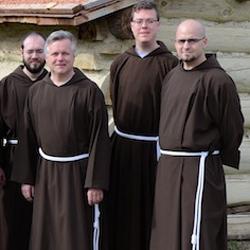How to enter a monastery as a novice. How to go to a monastery?
Receiving a blessing. Everyone who decides to join a monastery has different reasons, but whatever they are, everyone will have to go through certain steps to become a monk. Before leaving for a male monastery, you should receive a blessing from the priest, but this is very difficult. First, the clergyman takes a long look at the layman who wishes to take monastic vows, trying to understand the true purpose of such a decision. It often happens that he refuses a person because he does not see his readiness to leave all earthly affairs for the sake of serving the Lord. However, if he is a true Christian, goes to church every Sunday and has his own confessor, then receiving a blessing will be much easier, since it will be much easier for the priest to discern the person’s motives for becoming a monk. But this is in modern world is very rare, so a person will have to wait quite a long time for the blessing of a clergyman.
Become a novice. If the decision to go to a monastery is unshakable, then in order to realize your goal you should enter there as a novice. To do this, you need to ask your confessor or any clergyman which monastery is best to contact with this question. After he gives his blessing, you will need to arrange a meeting with the abbot and talk about the possibility of becoming a novice. It is worth noting that novitiate involves life in a monastery, daily prayer, compliance with internal routines, work, as well as observing all fasts, careful study of the Bible and other activities, and the duration of this period can be up to 10 years, so before leaving for the monastery, you should think carefully. But during this time, the novice can change his decision, realizing that this is not his path and return to the world. Due to the fact that not many become monks, the abbot of the monastery can offer a person to first become a laborer, and if he is diligent in his work, then after that he can become a novice. Workers, as a rule, practically do not participate in church affairs, but work on the farm at the monastery.
Taking tonsure. Only after a person proves to the abbot of the monastery that he is really ready to become a monk and will not change his decision in the future, will he allow him to take monastic vows. You should know that every person must undergo 3 degrees of monasticism. First, the novice becomes a ryassophore monk, taking vows of chastity, non-covetousness and obedience. Then he becomes a schema-monk, taking a vow of renunciation from the world. And only the field of these two steps can a person take tonsure, which is a symbolic action during which a person makes a promise that from that moment on he will be a servant of the Lord. As a rule, tonsure is performed personally by the abbot. To become a monk, you have to go through a difficult path, but this is the only way you can strengthen your faith, or choose to return to the world. In any case, you need to think carefully so as not to change your decision later.
Many people cannot stand the bustle of our world and begin to think about how tired they are of everything. Constantly home-work, work-home, family life begins to eat, trips to relatives do not bring the joy that was before. I want something bright and pure, for the soul, so that the inner world opens up and feels all the joy of life. This craving for something lighter and purer is becoming stronger and stronger every day. That's why people go to a monastery. A person begins to rush around and look for himself in new things, new achievements. He begins to live a social life, but gradually he realizes that even here there is no joy that he would like to experience. And then he turns to God.
How to go to a monastery and what is needed for this?
In order to go to a nunnery, you first need a desire. Be fully aware that by entering a monastery a person no longer belongs to the world - he begins to belong to God. That is, all his thoughts and deeds should be devoted only to serving Him.
In addition, at first the woman simply lives at the monastery for some time, understands herself and takes a closer look at the way of life of the nuns and the monastery itself. Then, after time, she is allowed to participate in the life of the monastery, to live according to its way of life, but despite all this, she is not given the title of nun for a year. This is done so that a woman, having felt with all her heart, can decide whether she wants to be a nun for the rest of her days or not. After this probationary year, if all goes well, the woman becomes a nun.
How can a married woman go to a monastery?
The most people come to the monastery different people, for a variety of reasons. There are some who are quite mature, and some who are very young. Married women they can also become nuns, but only if they do not have young children on their hands. That is, the children should already be quite adults and could earn their own living.

How to go to a nunnery for a while?
If you ask to go to a monastery, but your mind still doubts the correctness of such an action, you can approach the abbess of the monastery and ask to become a novice at the monastery. Mother Superior will never refuse help. You can be a novice at a monastery for any period of time.
Is it possible to leave the monastery?
You can leave the monastery at any time, because the monastery is the place where people come at the behest of their hearts. If a person has not accepted God into his heart, then it will be difficult for him to be in a monastery. Why force yourself? It would be better to leave on your own and figure yourself out, and God will always tell you how to do the right thing.
Today, on a wave of patriotism, we are becoming more and more pious - at least outwardly. What do we have with female monasticism - our attitude towards it and its attitude towards us? Who becomes nuns and why? Does God have a probationary period, otherwise the desire will go away? And is it possible to return to the world if it has passed?
Under the USSR Dictionary interpreted monasticism as a form of passive protest against inhuman living conditions, which originated under the autocracy, as a gesture of despair and disbelief in the possibility of changing these conditions. Back then, when you heard the word “nun,” you only thought of an elderly granny who had never gotten rid of the prejudices of the past. Today, those who go to the monastery look completely different.
For example, romantic young ladies, “bookish” girls who got their ideas about monasteries from novels and films. Muscovite Larisa Garina in 2006 observed obedience in the Spanish monastery of the Discalced Carmelites (one of the strictest, with a vow of silence), prepared to take the vow and assured that only love for God brought her to these walls. “It’s hard for a week without sex,” Larisa assured, “but for the rest of your life it’s normal!” Today Larisa is happy, married, mother of two children. Youth is just youth to experiment.
A significant contingent are girls with problems who initially end up in the monastery only for a while. 25-year-old Alina 7 years ago, at 18, became addicted to drugs. “My parents sent me to a monastery for 9 months,” she recalls. — This is a special monastery, there were 15 novices like me. It was hard - getting up before dawn for matins, praying all day and poking around in the garden, sleeping rough... Some tried to escape, went to the field to find some grass in order to at least “kill themselves” with something. After some time, the body apparently cleanses itself. And a little later, enlightenment comes. I remember this state well: how the scales fall from my eyes! I completely came to my senses, reconsidered my life, and my parents took me away.”
“The monastery is also a kind of rehabilitation center for people who are “lost”: drinkers, homeless,” confirms Alina’s words, confessor of the Mother of God Albazinsky St. Nicholas Convent, Father Pavel. — The lost live and work in the monastery and try to start a normal life.
Among those who went to monasteries, many famous people. For example, the younger sister of actress Maria Shukshina Olga, daughter of Lydia and Vasily Shukshin. At first, Olga followed in the footsteps of her parents and starred in several films, but soon realized that she was uncomfortable in this environment. The young woman found the meaning of life in God, lived at an Orthodox monastery in the Ivanovo region, where her sick son was raised for some time. Olga carried out “obedience” - in addition to prayers, she baked bread and helped with the monastery’s household chores.
In 1993, actress Ekaterina Vasilyeva left the stage and entered a monastery. In 1996, the actress returned to the world and to the cinema and explained the reason for her departure: “I lied, drank, divorced my husbands, had abortions...” Vasilyeva’s husband, playwright Mikhail Roshchin, after her divorce with whom she left the world, assured that the monastery cured him ex-wife from alcohol addiction: “No matter what clinics she was treated in, nothing helped. But she met the priest Father Vladimir - and he helped her recover. I think she sincerely became a believer, otherwise nothing would have happened.”
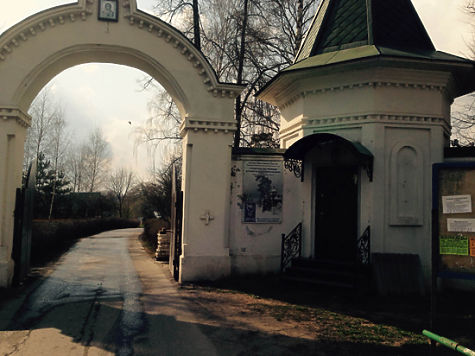
In 2008, People's Artist of Russia Lyubov Strizhenova (mother of Alexander Strizhenova) exchanged secular life for monastic life, waiting for her grandchildren to grow up. Strizhenova went to the Alatyr Monastery in Chuvashia.
The famous actress Irina Muravyova does not hide her desire to hide in the monastery: “What most often brings you to the temple? Illness, suffering, mental anguish... So grief and aching emptiness inside brought me to God.” But the actress’s confessor does not yet allow her to leave the stage.
I’m going to the courtyard of the Novospassky Monastery in the near Moscow region, famous for, which accepts novices and also provides shelter for women victims of domestic violence. Moreover, the monastery itself is for men.
I tell the priest that I came to consult about my 20-year-old niece Lisa - they say she wants to go to the monastery and will not listen to any persuasion.
Father, Father Vladimir, reassures:
- You bring her. We won’t take it, but we’ll definitely talk. There must have been unrequited love. Age has its place... She can’t go to a monastery! You cannot come to God out of grief and despair - whether it is unrequited love or something else. People come to the monastery only out of conscious love for God. Just ask Mother Georgia, she came to the sisterhood 15 years ago, although everything was fine with her - both work and home were full.
The sister, and now mother, named in the monastery in honor of St. George, was called differently in the world. Despite her black clothes and lack of makeup, she looks about 38-40 years old.
“I came at 45,” my mother smiles slyly, “and now I’m 61.”
Either an enlightened look gives such an effect, or a relaxed, kind face... I wonder what brought her to God?
- Do you have a goal in life? - Mother answers the question with a question. - And what is she like?
“Well, live happily, love children and loved ones, bring benefit to society...” I’m trying to formulate.
Mother Georgiy nods her head: “Okay, but why?”
And no matter how hard I try to find an explanation for my seemingly noble goals, I always come to a dead end: really, why? It turns out that my goals seem to be not lofty, but vain. Small troubles - all so that you can live comfortably, so that neither conscience nor poverty disturbs you.
“Until you realize the purpose of your earthly life, there is nothing to do in the monastery,” summarizes Mother Georgia, and Father Vladimir smiles approvingly. “I came when suddenly one fine morning I realized why I was living.” And I woke up with a clear understanding of where to go. She didn’t even come to the monastery; they brought the legs themselves. I left everything without a second thought.
- And have you really never regretted it?
“This is a state when you clearly see your path,” mother smiles. “There is no room for doubts or regrets.” Bring your Liza, we’ll talk to her, tell her that she doesn’t need to give up the bustle of the world - it’s too early. Go to the monastery only because of troubles in personal life no good! Yes, and from the young flesh there will still be temptations; she will have no time for prayer. But we definitely need to talk: otherwise, if she’s stubborn, some kind of sect can lure her in.
- Don’t you hire young people at all? But who are these women?— I point to a group of women in black robes working on a plot of land. Some of them seem young.
“There are those who are waiting for tonsure,” explains the priest, “but they have been here as novices for a long time, they have already tested their love for the Lord.” In general, the abbot usually does not give a blessing to a woman until she is 30 years old. There are those who are simply obedient; they can always leave. And there are those who ran away from their monster husband, they live over there, some with children,” the priest points to a separate log house. We will shelter everyone, but in order to somehow live, we must work in the monastery economy.
—Are there those who are not accepted as nuns on principle?
“The contraindications are about the same as for driving,” the priest smiles, pointing his finger at his car. - Epilepsy, mental disorders and drunkenness.
But why can one be drawn to a monastery by such happiness, if grief and disappointment are not allowed? My conversations with those who were just going to the monastery or visited, but returned to the world, show that such thoughts do not come from a good life.
Elena, a Muscovite, had an adult daughter in a terrible accident. While they were fighting for her life in intensive care, she vowed that she would go to a monastery if the girl survived. But the daughter could not be saved. A year after the tragedy, Elena admits that sometimes it seems to her that her daughter died in order to save her from monasticism. Because Elena is glad that she did not have to fulfill her promise and give up worldly life. Now the orphaned mother reproaches herself for not having formulated her thought differently then: let her daughter survive - and we will live together life to the fullest and enjoy it.
32-year-old Saratov resident Elena admits that a year ago she wanted to go to a monastery, it caused depression serious complications after operation. Today Lena is happy that there were kind people who managed to dissuade her:
“My confessor, as well as my family, friends and psychologists kept me from taking this step. I found a good father, he listened to me and said: you have a family - this is the most important thing! And he advised me to contact an Orthodox psychologist. Today I understand that my desire to go to a monastery was only an attempt to escape from reality and had nothing to do with the true desire to come to God.
“The desire of girls to enter a monastery is most often an attempt at self-realization in this way,” confirms Ellada Pakalenko, a psychologist with a rare “Orthodox” specialization. She is one of the few specialists who works specifically with “monasticism” - those who want to leave worldly life, but have doubts. They come to Hellas themselves, sometimes they are brought by relatives who are unable to dissuade their loved ones from such a step on their own. It was Pakalenko who helped Lena from Saratov escape the monastery cell. Hellas knows what she’s talking about: she herself went to the Donetsk monastery as a novice at the age of 20.
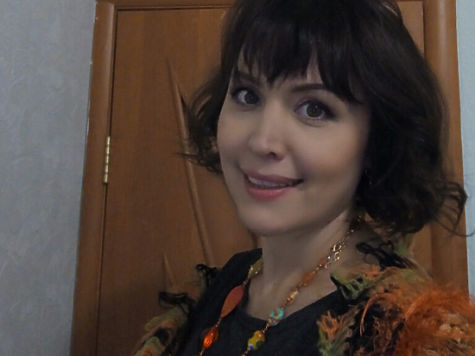
Hellas Pakalenko. Photo: from personal archive
— In general, a general flight to monasteries is always accompanied by economic crisis, genocide and overpopulation, says Hellas. — If we look at history, we see that mass exoduses of the laity always occur against the background and as a consequence of a sick society. And the mass exodus of women is a sure sign of pressure on them. This happens when women stop coping with the task assigned to them and want to throw off the burden of responsibility by trusting in God. And from time immemorial, girls have been raised with very high demands: she must be a wife, a mother, a beauty, and educated, and be able to feed her children. And boys grow up irresponsible, feeling that they themselves are happiness and a gift for any woman.
An Orthodox psychologist is sure that going to a monastery replaces unrealized love for a woman:
— As practice shows, girls who go to the monastery are not from church-going families at all, but emotionally closed ones, with low self-esteem and weak sexuality, believing that only within the monastery walls they will be “understood.” They do not understand that this is not a solution, and certainly not good for God. To pacify the flesh, the monastery is also not the best place: girls with normal sexuality who try to suppress it in this way will have a hard time in the monastery. In the sense that they will not find the peace they are looking for there.
Pakalenko says that she visited many monasteries, talked with novices and nuns, and can say exactly what brings yesterday’s carefree girls to their cells. These are poor relationships with parents, especially with the mother, low self-esteem and perfectionism.
— In one monastery I saw such nuns that Hollywood is resting! - Hellas recalls. — Tall, slender girls with model appearance. It turned out, indeed, that they were yesterday’s models, kept women of rich people. And they have such a challenge in their eyes and in their speeches: “I feel better here!” For young people, a monastery is always an escape from problems and failures. An attempt to “change coordinates” in one’s own life so that they are treated differently. This is not bad, but this is not about true faith, but about the fact that these girls have no other tools to change their lives - not to be discouraged, to work, to study, to love. This is about weakness and lack of will to live, and not at all about love for God. Good confessors dissuade such people. But all sorts of sects, on the contrary, search and lure. Sects always need fresh blood from the disappointed, desperate, and morally unstable. And they always lure precisely because they promise being chosen: “We are special, we are different, we are higher.”
Hellas talks about his own journey into the monastery walls. It was in her native Donetsk, she was 20, she was stately and beautiful girl, enjoyed increased attention from men, for which she was constantly reproached in a strict family. At some point, she wanted a pause—inner silence—to get to know herself. And she ran away to the monastery. 20 years have passed since then, and Hellas assures that there is a way back from the monastery. Although it is certainly not easy.
“I know what it’s like to live in a monastery as a novice, and then understand that it’s not yours, and leave there and return to these walls only as a specialist - a “dissuade” from the monastery. Now I’m 40, I teach people to believe in God and keep his commandments, and not to isolate themselves from the outside world simply because they don’t have the strength to get what they want, to resist violence, evil, pain.
Hellas recalls that at the monastery, in addition to novices and nuns, there were simply women with children who had nowhere to go. All the inhabitants of the monastery walls had their own stories, but no one was taken to monastic vows right away. It was necessary to stay in the monastery for at least six months and, if the desire persisted, to ask for the blessing of the abbess. Mostly they were simple women, without special requests or education.
An expert on Orthodox ethics and psychology, Natalya Lyaskovskaya, admits that after the onset of the crisis, there were more women who wanted to retire from the world. And he identifies 5 main types of “candidate nuns.”
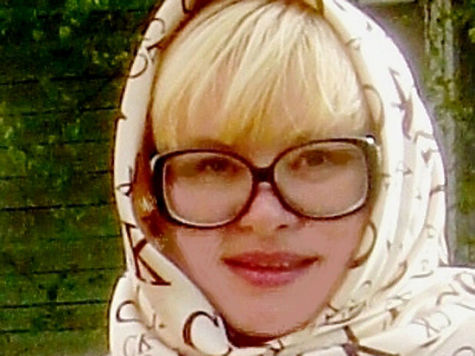
Natalya Lyaskovskaya. Photo: from personal archive
1. Today, students of monasteries most often become nuns. In Russia there are many shelters where orphan girls, those who have lost their parents, and children from disadvantaged families find protection, care and care. These girls are growing up convents under the care of sisters in Christ, who not only care about the physical health of their pupils, but also the mental health - they treat the children with the love that they were deprived of. After graduating from high school, they can leave the walls of the monastery and find their place in society, which is not difficult with the acquired skills. However, often girls remain in their native monastery for the rest of their lives, take monastic vows and, in turn, work in shelters, nursing homes, hospitals (for obedience), in schools - and at the monasteries there are music, art, and pottery workshops. and other schools, not only general education and parish schools. These girls cannot imagine life without a monastery, outside of monasticism.
2. The second common reason why adult girls and women come to the monastery is a great misfortune suffered in the world: the loss of a child, the death of loved ones, the betrayal of a husband, etc. They are accepted for obedience if for a long time a woman still wants to become a nun and the Mother Superior sees that she will become a nun, she is tonsured. But more often than not, such women gradually come to their senses, gain spiritual strength in the monastery and return to the world.
4. There is another category of women over whom our monasteries are increasingly taking guardianship. These are women who failed to integrate into the social model of society or for some reason were thrown to the margins of life: for example, they lost their homes due to the fault of black realtors, were expelled from home by children, drinkers, and are struggling with other addictions. They live in a monastery, are fed by it, work as best they can, but they rarely become nuns. It is necessary to go through a long spiritual path for the monastic spirit to kindle in such a person.
5. Sometimes there are exotic reasons: for example, I know one nun who went to the monastery (besides her sincere spiritual disposition towards the monastic way of life) because of the unique library that the monastery she chose had. In one of the Siberian monasteries there is a black girl, she came to Russia specifically to become a nun and “live in silence”: in her homeland she had to live in a black ghetto, where there was terrible noise day and night. The girl accepted holy baptism and it’s been four years since I took monastic vows as a nun.
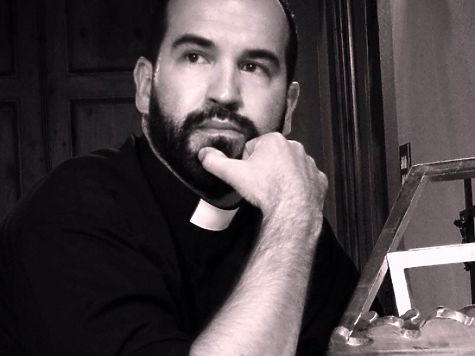
Father Alexey Yandushev-Rumyantsev. Photo: from personal archive
And Father Alexey Yandushev-Rumyantsev, prefect for educational and scientific work at the Higher Catholic Theological Seminary in St. Petersburg, explained true female monasticism to me:
“The Church sees a special blessing in women’s choice of the monastic path - as always, when its children devote themselves to prayer and spiritual feat for the world and for all humanity, for this is love for one’s neighbor. Today, as in all previous eras, starting from the early Middle Ages, among the people who devoted their entire lives to serving God and prayer, the majority were women. The experience of our life suggests that, being delicate and defenseless by nature, women are in fact often stronger and incomparably more selfless individuals than men. This also affects their life choices.”
Probably each of us has seen a monk (or nun) at least once, encountered them in churches or in everyday life. Statistics show that a survey of several people on the topic “Why and how female and male representatives go to the monastery” collected the overwhelming majority of typical answers.
The absolute majority believes that young nuns or monks are unfortunate, who have not found another shelter for their lonely soul other than the monastery. But it didn’t work out for middle-aged women and men family life or professional career. Is this really true? Let's find out.
So, the general opinion about this situation is this: people who have not found themselves in this life, or who are simply weak in spirit, become nuns (and monks). The monks themselves do not agree with such a meager philistine opinion. They explain and tell things completely differently. Let's find out the real truth!
I want to go to a monastery, but my conscience won’t allow me...
People of completely different ages and social status come to the monastery. These could be poor old people,  mature women or simply young ones, and the reason for this is the most ordinary human desire to repent, devote one’s life to the Lord, as well as an uncontrollable desire for self-improvement. Notice the difference - it is not losers who go to the monastery, but determined and energetic people! After all, to live in monastic conditions, you need to be a courageous and determined person.
mature women or simply young ones, and the reason for this is the most ordinary human desire to repent, devote one’s life to the Lord, as well as an uncontrollable desire for self-improvement. Notice the difference - it is not losers who go to the monastery, but determined and energetic people! After all, to live in monastic conditions, you need to be a courageous and determined person.
How do they go to the monastery?
To become a monk, a person needs to make certain vows before the Lord God. This is quite a serious step, and there is simply no turning back! Therefore, there is an option for a kind of “insurance”. So that a person does not make the main mistake of his life, succumbing to certain feelings, he is tested for a long time. This happens by assigning him one or another monastic degree.
